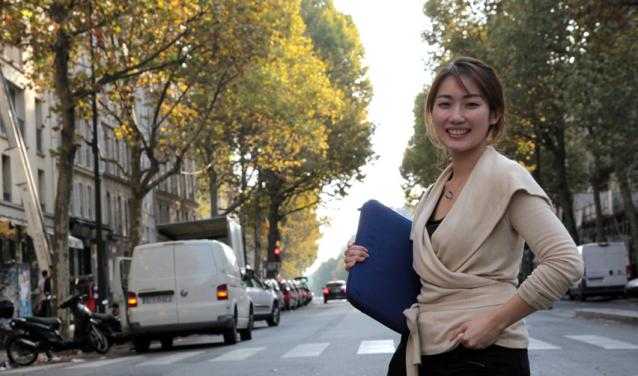Home>“As arbitration practitioners, we have a duty to take part in institution building”

30.10.2017
“As arbitration practitioners, we have a duty to take part in institution building”
After four years of working as a lawyer in international arbitration and cross-border litigation, Leia Shin (33) decided that it was time to take her expertise to the next level. She left Lee & Ko, the second largest law firm in Seoul, to begin an LLM in Transnational Arbitration & Dispute Settlement at the Sciences Po Law School in Paris.
Why did you make the decision to come back to university after four years of professional experience?
I have been working as a lawyer since 2013, mainly in the field of international arbitration and cross-border disputes. Working as an associate in a major law firm, I was able to gain extensive experience in dispute resolution, representing international clients and pleading in front of international arbitral tribunals and courts.
While practicing law, investment disputes became a special interest of mine and I wanted to learn more about this specialised field. However, since the practice is monopolised by a small circle of experts operating mainly in Europe and the US, it was difficult to gain experience in this field within the Korean legal market.
So I decided to expand my practice, which had been mainly confined to the Asia-Pacific region, to the wider global arbitration community. I naturally looked abroad with a special focus on Europe, since it is home to prominent arbitral institutions such as the International Court of Arbitration of the International Chamber of Commerce (ICC) or the Permanent Court of Arbitration.
Why was Sciences Po your university of choice?
When I started looking, I considered options in different parts of the world - there were well known programmes in arbitration in the United States, UK and Switzerland, for example.
But I wanted something different and unique that would compliment my experience in a way that the other programmes could not. When I heard about Sciences Po’s new LLM programme in Transnational Arbitration, I knew I had found the answer.
Sciences Po was an obvious choice for me because I know of its standing in French society. Also, since I spent most of my teenage years in Paris, I am wired to the French way of thinking and understand the particular values of the French approach to education, which I characterise as a balance between philosophy and practicality. I find that the “Frenchness” of the programme complements the transnational character of international arbitration perfectly, and gives practitioners the chance to develop a broader and deeper perspective in this field.
Two months into the programme, what are your impressions?
I am really enjoying the daily inspiration I get from my lecturers and colleagues. My LLM colleagues are a mixed group of civil law lawyers and common law lawyers from all over the world and of different ages (predominantly in their 20s and 30s but also in their 60s!). Since we are a small group of 13, we bonded quickly and have become like a little family. We all bring something from our own jurisdiction so it feels like we are building a small hub of international arbitration practitioners of our own.
Another big advantage is that we have direct access to leading practitioners and academics. The programme invites inspiring figures such as Emmanuel Gaillard, Alain Pellet, Gary Born, Franco Ferrari and many others. Through this programme, we are given access to the inner circle of arbitration and get to pick the brains of the giants in the field. As they say, we get to “stand on the giant’s shoulders and see the world.”
What values could this programme bring to current practitioners in arbitration?
The programme provides a wider spectrum of disciplines than anywhere else. Especially, it has a strong academic approach which lets you take a step back and think about the field of arbitration in terms of values. We study fundamental disciplines such as public international law, international criminal law and philosophy of arbitration on top of the more practical subjects focusing on specific types of disputes (investment arbitration, energy disputes, sports arbitration etc.)
I personally believe that to go to the next level as a practitioner in arbitration, you need a deeper academic grounding. Although a lot of arbitration lawyers obsess over a “specialisation” in a narrower and a more specific type of dispute, what makes the practice of arbitration stronger and more durable is an effort to look at it from the perspective of institution building. This is even more important given the transnational and independent character of arbitration which is not rooted in a specific jurisdiction or judicial system. I think that as arbitration practitioners, we have a duty to take part in institution building as much as the day-to-day management of disputes.
What are your plans after the LLM at Sciences Po?
I plan to spend some years working in Paris or Europe to gain more experience in the field of investment disputes. There are a number of law firms that are very active in this field, such as White & Case or King & Spalding. I also hope to have an opportunity to work in major institutions that handle investment disputes, such as the Permanent Court of Arbitration (PCA) in The Hague or the International Centre for Settlement of Investment Disputes (ICSID) in Washington DC.
Find out more